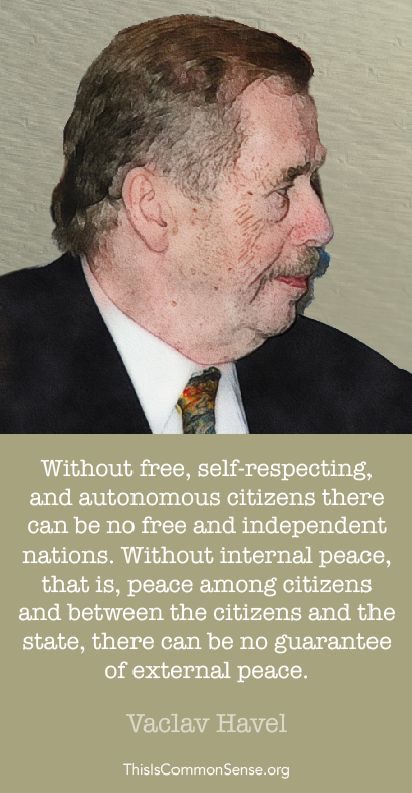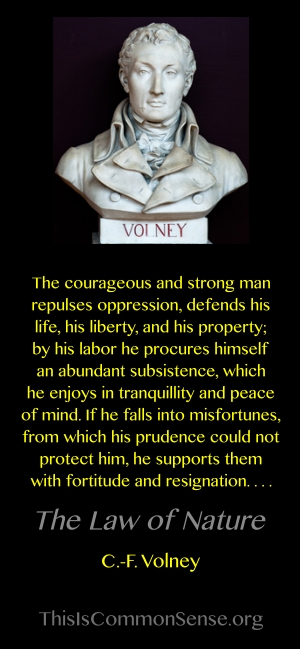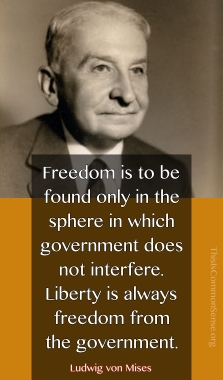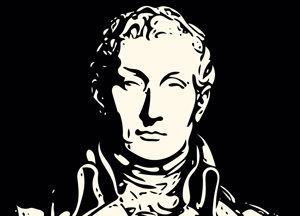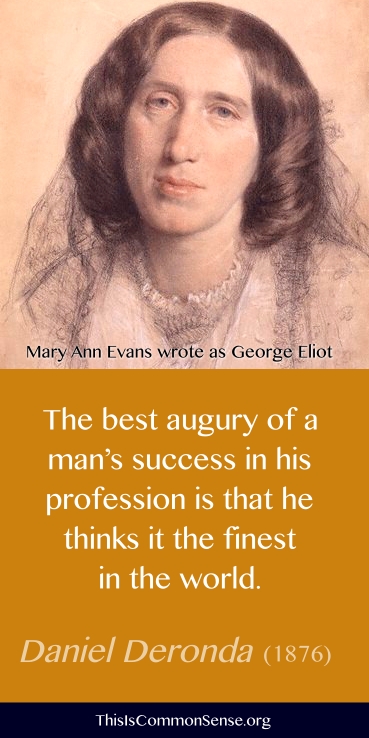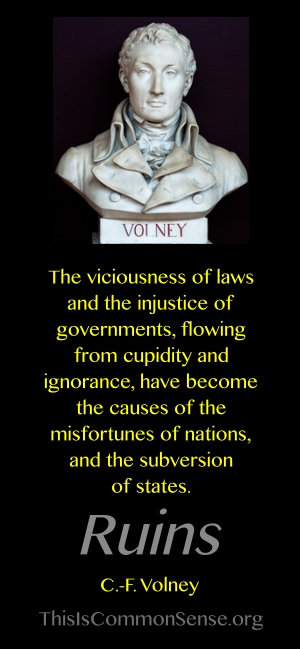The perpetual play of the passions having produced incidents not foreseen — their conventions having been vicious, inadequate, or nugatory — in fine, the authors of the laws having sometimes mistaken, sometimes disguised their objects; and their ministers, instead of restraining the cupidity of others, having given themselves up to their own; all these causes have introduced disorder and trouble into societies; and the viciousness of laws and the injustice of governments, flowing from cupidity and ignorance, have become the causes of the misfortunes of nations, and the subversion of states.
Constantin-François de Chassebœuf (1757–1820), Comte de Volney, The Ruins; Or, Meditation on the Revolutions of Empires, Chapter IX (Thomas Jefferson, translator).
